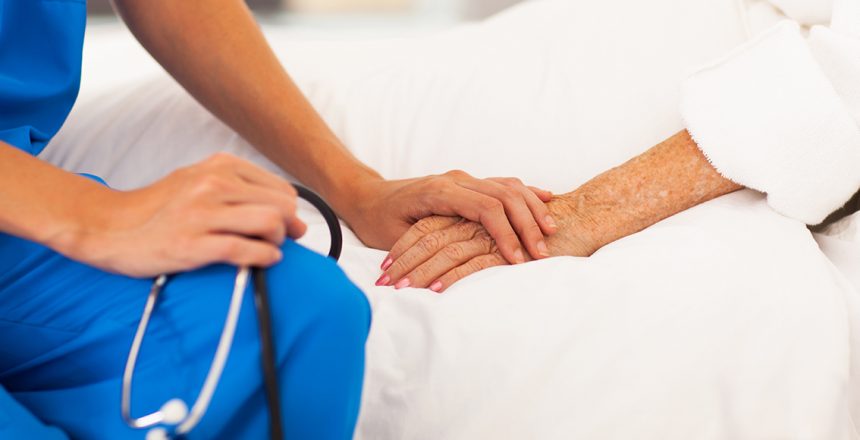Patient safety incidents (PSIs) often have a profound yet unrecognised effect on clinicians.1-5 In fact, when medical students and residents were asked to simply imagine themselves committing errors they already experienced ‘significant stress’.6
Almost thirty years ago now, Dr Christensen and his team conducted ground-breaking research by interviewing community physicians about the impact of their perceived mistakes on them. They described their research as the ‘equivalent to a descent into the underworld of medicine’ and ‘a journey into a place of shame, fear and isolation’.7
Clinicians vividly described experiencing a wide range of negative emotions like frustration, guilt, fear, anger, self-doubt, anxiety, humiliation, shame and embarrassment in response to PSIs, and how these dysphoric feelings remained unresolved for months and years. The negative feelings are consistent across different clinical groups and diverse, international healthcare settings.2-4,8 There is also emerging evidence that PSIs have an emotional impact on all healthcare staff, not only clinicians.9,10
Clinicians who consciously address their emotional response to PSIs tend to use one of two strategies, either focusing on the ‘emotion’ or the ‘problem’.7 The two strategies can be compared to the practical tasks clinicians face when they respond to a PSI or medical error: ‘How do I deal with this’ and ‘how do I learn from this?’ 1 Examples of helpful, emotion-focused strategies include disclosing errors to peers, patients, and family, self-forgiveness, and re-establishing or re-affirming their professional identities. Clinicians with a successful ‘problem-focused’ approach analyse the event, learn from it, and take remedial actions.
When these strategies are successful, clinician experience that ‘this landscape of fallibility contains the spirit of wisdom that can guide the rebuilding’.7 With one exception, all of the participants in Dr Christensen’s study described learning from their mistakes and taking specific actions after PSIs to improve their clinical performance in some way. Unfortunately, we also know that a substantial number of clinicians do not consciously deal with the personal effects of PSIs on them. For some, there is no escape from the ‘heart of darkness’ of the PSI experience.
In some ways little has changed in the quarter century since this study was published: patients still suffer avoidable, iatrogenic harm; and clinicians still err despite our best efforts to provide safe care. The emotional cost of PSIs remain exorbitant for patients, families, and clinicians.1 This is why clinicians who are involved in PSIs resulting in serious harm are sometimes referred to as the ‘second victims’ of the incident.11
One thing that has changed dramatically in health care, and especially in general practice, is the disclosure rates of medical errors. In Dr Christensen’s time only a tiny minority of physicians admitted disclosing their mistakes, and those that did only confided in close relatives.7 In contrast, all of the general practice clinicians and staff who participated in a recent study, The Big Buzz’, unanimously agreed that disclosing errors was not only appropriate but that they felt able to do so, and were confident of the support of their colleagues, should this be required.12
Patients prefer disclosure of medical errors.13 A questionnaire study about the management of serious medical errors and subsequent outcomes in general practice in Germany, found the majority of patients continued to trust their GPs despite them disclosing serious errors, especially if the GP had discovered the problem and disclosed it themselves, or if other health care providers also contributed to the PSI.14
A recent systematic review provide evidence that PSIs also have positive outcomes. They found PSIs increased the confidence of clinicians to speak up for safety and many examples of subsequent improvement actions, from the individual through the unit to an organisational level.4
There is a common perception that clinicians learn more from their own mistakes than from the mistakes of their peers, and that they are more likely to learn from PSIs that result in harm compared with near misses.6,15 However, the correlation (if any) between the severity of an incident and the likelihood of learning from it has not conclusively been demonstrated.
There is, however, compelling evidence for three specific factors that do increase the likelihood of learning from PSIs. They are: the characteristics of clinicians; creating opportunities for critical reflection and discussion of incidents; and providing constructive feedback to clinicians. 2,8,9,15,16
The difference between clinicians ‘thriving’, rather than simply ‘surviving’ after a PSI therefore seem to be constructive, timely feedback and whether they are supported to learn in the aftermath of a serious incident or error.11 We urgently need more research to better understand how we can better mitigate the negative consequences of PSIs and optimize their great potential for learning and improvement. In this way, we will provide hope, even in the Heart of Darkness.
References
- Newman MC. The emotional impact of mistakes on family physicians. Arch Fam Med. 1996;5(2):71-75.
- Waterman AD, Garbutt J, Hazel E, et al. The emotional impact of medical errors on practicing physicians in the United States and Canada. Jt Comm J Qual Patient Saf. 2007;33(8):467-476.
- Venus E, Galam E, Aubert JP, Nougairede M. Medical errors reported by French general practitioners in training: results of a survey and individual interviews. BMJ Qual Saf. 2012;21(4):279-286.
- Sirriyeh R, Lawton R, Gardner P, Armitage G. Coping with medical error: a systematic review of papers to assess the effects of involvement in medical errors on healthcare professionals’ psychological well-being. Qual Saf Health Care. 2010;19(6):e43.
- Seys D, Wu AW, Van Gerven E, et al. Health care professionals as second victims after adverse events: a systematic review. Eval Health Prof. 2013;36(2):135-162.
- Fischer MA, Mazor KM, Baril J, Alper E, DeMarco D, Pugnaire M. Learning from mistakes. Factors that influence how students and residents learn from medical errors. J Gen Intern Med. 2006;21(5):419-423.
- Christensen JF, Levinson W, Dunn PM. The heart of darkness: the impact of perceived mistakes on physicians. J Gen Intern Med. 1992;7(4):424-431.
- Ahmed M, Arora S, Carley S, Sevdalis N, Neale G. Junior doctors’ reflections on patient safety. Postgrad Med J. 2012;88(1037):125-129.
- O’Beirne M, Sterling P, Palacios-Derflingher L, Hohman S, Zwicker K. Emotional impact of patient safety incidents on family physicians and their office staff. J Am Board Fam Med. 2012;25(2):177-183.
- O’Beirne M, Sterling PD, Zwicker K, Hebert P, Norton PG. Safety incidents in family medicine. BMJ Qual Saf. 2011;20(12):1005-1010.
- Scott SD, Hirschinger LE, Cox KR, McCoig M, Brandt J, Hall LW. The natural history of recovery for the healthcare provider “second victim” after adverse patient events. Qual Saf Health Care. 2009;18(5):325-330.
- de Wet C, Bowie P, O’Donnell C. ‘The big buzz’: a qualitative study of how safe care is perceived, understood and improved in general practice. BMC Family Practice. 2018;19(1):83.
- Gallagher TH, Waterman AD, Ebers AG, Fraser VJ, Levinson W. Patients’ and Physicians’ Attitudes Regarding the Disclosure of Medical Errors. JAMA 2003;289(8):7.
- Fisseni G, Pentzek M, Abholz HH. Responding to serious medical error in general practice – consequences for the GPs involved: analysis of 75 cases from Germany. Fam Pract. 2008;25(1):9-13.
- Drupsteen L, Guldenmund FW. What Is Learning? A Review of the Safety Literature to Define Learning from Incidents, Accidents and Disasters. J Conting Crisis Manage. 2014;22(2):81-96.
- Kroll L, Singleton A, Collier J, Rees Jones I. Learning not to take it seriously: junior doctors’ accounts of error. Med Educ. 2008;42(10):982-990.

